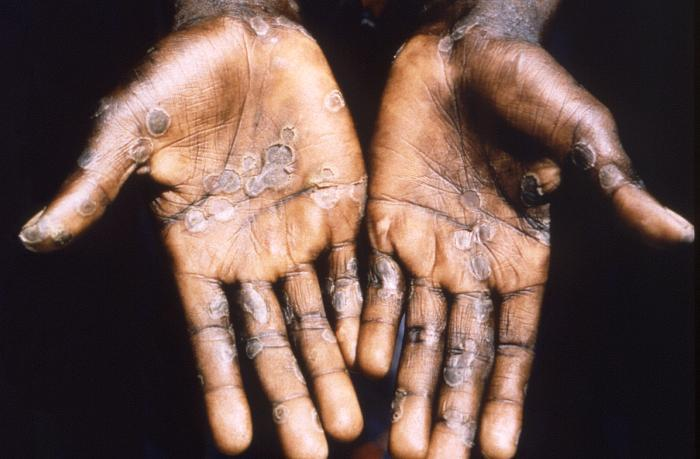
A comparison of prolonged and non-prolonged mpox cases in California suggests that Black patients and those with HIV were more likely to have protracted infections.
The study, led by University of California researchers, was published late last week in Emerging Infectious Diseases. The team mined data from the California Department of Public Health mpox registry to compare rates of prolonged (28 days or longer) with those of non-prolonged (shorter than 28 days) infections by demographic factors, HIV status, and mpox vaccination status from May 2022 to August 2024.
Mpox in the United States has been primarily a sexually transmitted infection among men who have sex with men. The median mpox duration is 14 to 28 days from the appearance of the first lesion. People with prolonged cases are infectious longer and may present more opportunities for viral mutations, the authors noted.
"Because of the novel geographic spread of mpox, decreasing smallpox vaccine-induced immunity, and continuing endemic transmission in many countries around the world, a need exists to understand more about this virus, including viral transmission dynamics and clinical characteristics of infections," they wrote.
Protracted cases more likely to lead to hospitalization
In total, 4.7% of mpox patients in the study were hospitalized, 85.5% were unvaccinated, 1.2% were fully vaccinated with two doses of Jynneos vaccine, and 40.2% had HIV.
Groups disproportionately affected by prolonged mpox should be prioritized for mpox vaccine education and outreach.
Among 6,469 mpox infections, 82 (1.3%) were prolonged. A larger proportion of patients with prolonged cases were hospitalized than those with shorter infections (25.6% vs 4.5%).
Protracted infections were more likely to occur in Black patients (20.7% prolonged vs 11.6% non-prolonged) and those with HIV (61.0% vs 39.9%, respectively). The longest infection lasted 345 days, and 25.6% of the prolonged cases lasted 50 or more days.
Of mpox patients with HIV, prolonged infections occurred more often among those with lower CD4 counts, indicating more immune compromise (10.0% prolonged vs 3.9% non-prolonged) and those not receiving HIV care (46.0% vs 18.1%, respectively). No prolonged infections occurred in fully vaccinated patients.
"Groups disproportionately affected by prolonged mpox should be prioritized for mpox vaccine education and outreach," the researchers concluded.
.jpg)












